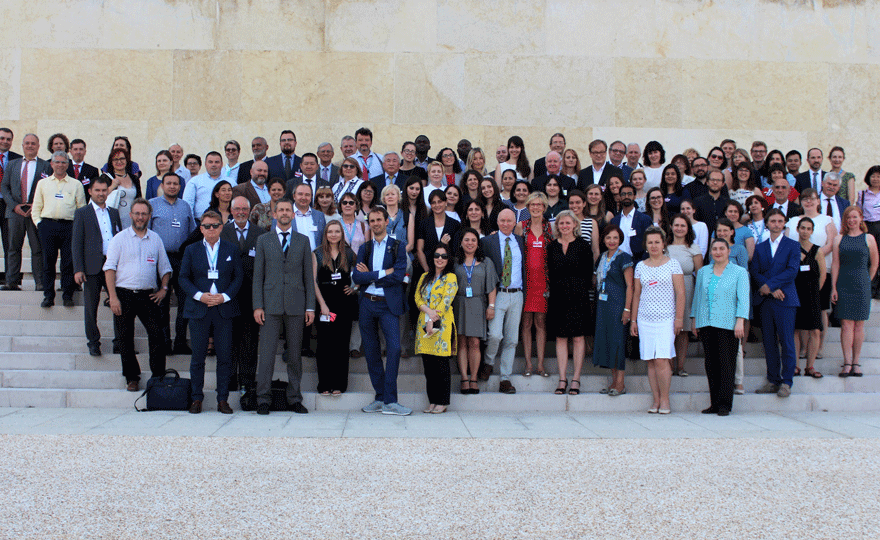ClientEarth Communications
28th June 2018


Summer Kern, ÖB / J&E
Csaba Kiss, EMLA / J&E
It wasn't just any normal Working Group of the Parties meeting which took place on 19-21 June 2018.
Parties, NGOs, academics, and many diverse stakeholders all came together to celebrate the 20th Anniversary of the Aarhus Convention. Through speeches and interventions, the enormous impact this Convention has had within the UNECE region was made clear. All the contributions confirmed that without the Aarhus Convention, we would not be discussing the issues we are doing now. The Convention, as a binding international legal instrument, transformed the legal systems and practices of the Parties. By the EU also ratifying it, it had a large impact on the EU institutions as well.
Though challenges and concerns such as a constant need for awareness raising on the Convention and occurrences of non-compliance, even by EU institutions, were also highlighted, particularly with respect to environmental defenders and shrinking civic spaces, the overall message and mood at the WGP was incredibly positive.
There could be no better affirmation of the Convention and the goodwill of its Parties than the new Escazú Agreement which was adopted by 24 countries on March 4, 2018. It is the first ever legally binding treaty on environmental rights covering Latin America and the Caribbean (LAC). The agreement was discussed at the WGP as being in some ways a sister agreement to the Aarhus Convention, one which, on the one hand can learn from and is perhaps less ambitious than the Aarhus Convention, yet in some aspects strives for more. While the LAC Convention is less specific in who is entitled by certain rights it enshrines, it is definitely more specific in targeting environmental defenders and their protection. The Convention will open for signatures in September 2018.
Throughout the WGP, it was clear that this was no mere bureaucratic exercise. Discussions were important, lively, and at times impassioned. At the reception kindly hosted by the Swiss Government, NGOs, some Parties, and others joined in songs especially dedicated to the Convention. It is thus quite hard to imagine a better, more fitting celebration of the twentieth anniversary of the adoption of the Convention.
Access to Justice is a fundamental means through which citizens and NGOs can support the implementation and enforcement of laws and policies to protect the environment. The goal of this ATOJ-EARL project is to achieve “Access to Justice for a Greener Europe”. It strives to enhance access to justice in environmental matters by providing information, training and support for the judiciary, public authorities and lawyers of eight European member states. ClientEarth and Justice and Environment are implementing this project with the financial support of the European Commission’s LIFE instrument.
